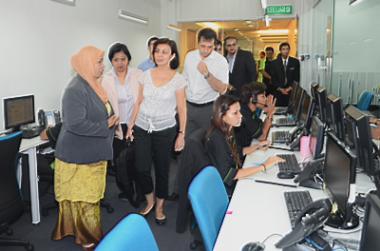Improving Energy Efficiency in Bosnia and Herzegovina’s Public Buildings

Summary
What was the objective of the South-South exchange? : The often-inefficient energy end-use in Bosnia and Herzegovina indicates a real need for reducing the burden of energy expenses in both public and private sectors. An important energy sector goal of the country is to increase energy efficiency by 9 percent by 2018, and for the public sector to demonstrate leadership in improving energy efficiency. Drawing on the success of the first and second Serbia Energy Efficiency Projects (SEEP) in public buildings across Serbia, the knowledge exchange had multiple objectives:
• Build capacity on how to identify, develop, and manage building energy efficient investments and, as a specific technical focus area, to perform energy-efficiency audits in buildings.
• Support the proposed Bosnia and Herzegovina Energy Efficiency Project (BEEP), under preparation with financing of US$32 million, and strengthen the country’s capacity and preparedness to swiftly and successfully implement BEEP.
During July-November 2013, experts from SEEP visited Bosnia and Herzegovina for a multi-faceted knowledge exchange program for about 40 energy specialists. This program comprised technical assistance on how to conduct energy audits involving engineers and technical professionals from the government, universities, and private sector; the participants subsequently conducted 35 energy audits. The exchange program also included a management skills workshop for 16 government and public sector officials and project implementation staff. In March 2014, 4 project implementation unit officials traveled to Belgrade, Serbia, for a follow-up study tour to observe day-to-day project operations; learn about short-, medium-, and long-term challenges and solutions; and exchange ideas on lessons learned from SEEP project management. Overall, technical and non-technical staff in Bosnia and Herzegovina and Serbia enhanced their knowledge and skills on issues related to energy efficiency, energy audit calculation requirements and methodology, space heating requirements in buildings, and project implementation in energy efficiency themes.
What results have been achieved?
The exchange directly contributed to the preparation of the IDA credit of US$32 million to fund BEEP. This funding proved to be very timely given constraints from the Bosnia and Herzegovina Government to allocate sufficient funds for the BEEP preparation stage. The exchange not only equipped the Government to better implement BEEP and demonstrate leadership in improving energy efficiency but strengthened the capacity of the private sector service providers. Participants and the project implementation unit, for example, have conducted further audits in order to determine the best-suited buildings for various batches of retrofitting under BEEP. Further to the exchange, an informal network of experts has emerged to enable close collaboration (via phone, e-mail, and face-to-face meetings) with both BEEP and SEEP leadership when the need arises. Members of the network can now obtain expert and experience-based advice on technical and non-technical aspects of energy-efficiency projects.

 China
China Colombia
Colombia Denmark
Denmark India
India Indonesia
Indonesia Mexico
Mexico Russian Federation
Russian Federation Spain
Spain United Kingdom
United Kingdom